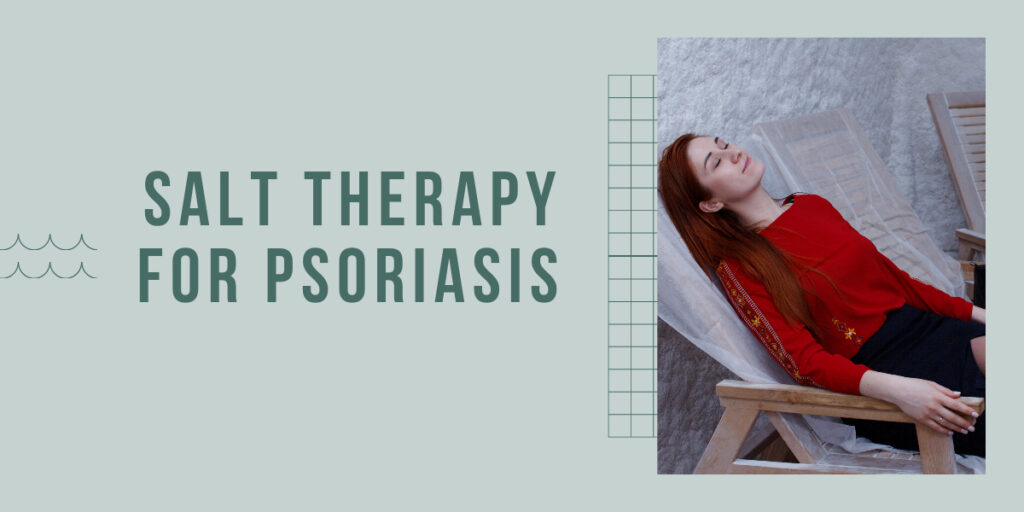Salt Therapy for Psoriasis: A Natural Oasis for Soothing Skin
Psoriasis is an infuriating skin condition that affects millions worldwide. Characterized by red, itchy, and scaly patches on the skin, it can be an unwelcome obstacle to daily life. Those afflicted with psoriasis often seek relief from various treatments, and one fascinating option that has been gaining popularity is salt therapy for psoriasis.
Salt therapy, also known as halotherapy, traces its roots back to ancient civilizations that lauded the healing properties of salt for skin and respiratory ailments. The concept has reemerged in modern times, offering a natural, drug-free approach to managing psoriasis. In this article, we dive deep into the salty waters of halotherapy, exploring its benefits and potential effectiveness in alleviating psoriasis symptoms.
The Salt Therapy Phenomenon
Salt therapy has been making waves in the wellness industry as a natural remedy for various conditions, and psoriasis is no exception! The idea revolves around the inhalation of salt-infused air, which is believed to have therapeutic effects on the skin and respiratory system. Salt therapy typically takes place in specialized rooms, often adorned with salt-lined walls and floors, creating an atmosphere reminiscent of a relaxing seaside retreat.
How Does Salt Therapy Work?
Salt therapy rooms are carefully controlled environments where microscopic salt particles are dispersed into the air. As psoriasis patients breathe in salt-laden air, the particles reach deep into their respiratory system, promoting better lung function and reducing inflammation. But how does this help with psoriasis, a skin condition? The answer lies in the holistic approach of salt therapy.
The Holistic Impact
Salt therapy is a multipronged approach to treating psoriasis, addressing the condition from both the inside and outside. Let’s take a closer look at the holistic impact of salt therapy for psoriasis:
- Respiratory Benefits: Breathing in salt-infused air helps cleanse the respiratory system, expelling toxins and allergens that may contribute to psoriasis flare-ups. Improved respiratory function also boosts overall well-being, which can have positive effects on skin health.
- Skin Rejuvenation: Salt therapy isn’t limited to the respiratory system; it also provides benefits to the skin. When salt particles land on the skin’s surface, they help exfoliate dead skin cells, leaving it feeling smoother and looking more radiant.
- Reduced Stress: The calming ambiance of salt therapy rooms promotes relaxation and reduces stress, which can be a significant trigger for psoriasis flare-ups. By easing stress levels, patients may experience fewer instances of psoriasis outbreaks.
The Salt Therapy Experience
Picture yourself reclining in a cozy salt therapy room, the gentle sound of waves crashing in the background, and a faint salty scent in the air. This serene setting sets the stage for a rejuvenating salt therapy session. The treatment typically lasts around 30 to 60 minutes, during which you can unwind, read a book, or simply let your mind drift away. Some therapy centers even provide soothing background music to enhance the experience further.

FAQs about Salt Therapy for Psoriasis
Now that we’ve explored the basics of salt therapy for psoriasis, let’s address some common questions that may be on your mind:
- Is Salt Therapy Safe for Psoriasis?
Absolutely! Salt therapy is considered safe for most people, including those with psoriasis. However, it’s always a good idea to consult with your dermatologist or healthcare provider before trying any new treatment. - How Often Should I Attend Salt Therapy Sessions?
The frequency of salt therapy sessions can vary depending on the severity of your psoriasis and your individual response to the treatment. Some people find relief with just a few sessions, while others may benefit from regular visits over an extended period. Your healthcare provider can help determine the ideal frequency for you. - Can Salt Therapy Completely Cure Psoriasis? While salt therapy can provide relief and improve psoriasis symptoms, it’s essential to understand that it may not be a cure. Psoriasis is a chronic condition, and individual responses to treatments can vary. Salt therapy should be seen as a complementary approach to managing symptoms rather than a definitive cure.
- Are There Any Side Effects of Salt Therapy?
Salt therapy is generally well-tolerated, and side effects are rare. However, some people may experience minor skin irritation or dryness, which is usually temporary and mild. - Can I Combine Salt Therapy with Other Psoriasis Treatments?
Absolutely! In fact, many individuals find that combining salt therapy with other psoriasis treatments, such as topical creams or phototherapy, enhances overall results. Always discuss your treatment plan with your healthcare provider to ensure safe and effective combinations.
Conclusion
As we venture through the salty depths of halotherapy, we find an oasis of hope for psoriasis sufferers. Salt therapy offers a refreshing, natural approach to alleviating psoriasis symptoms, providing benefits for both the respiratory system and the skin. Its holistic impact, combined with the soothing atmosphere of salt therapy rooms, creates a haven where stress and inflammation can subside.
Remember, while salt therapy for psoriasis can be a valuable addition to your treatment arsenal, it’s essential to work closely with your healthcare provider to tailor a comprehensive plan that meets your specific needs. Embrace the calming embrace of salt therapy and embark on a journey towards healthier skin and improved well-being!
Reference:
- Lazarescu H, Simionca I, Hoteteu M, Munteanu A, Rizea I, Iliuta A, Dumitrascu D, Dumitrescu E. Surveys on therapeutic effects of “halotherapy chamber with artificial salt-mine environment” on patients with certain chronic allergenic respiratory pathologies and infectious-inflammatory pathologies. J Med Life. 2014;7 Spec No. 2(Spec Iss 2):83-7. PMID: 25870681; PMCID: PMC4391365. https://www.ncbi.nlm.nih.gov/pmc/articles/PMC4391365/
- https://www.medicalnewstoday.com/articles/halotherapy
